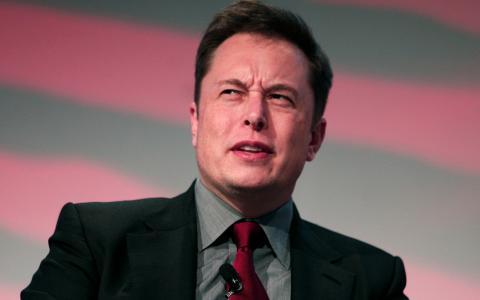
Tesla’s attempt to reset investor confidence following a disappointing first quarter and months of brand erosion is meeting skepticism from both retail traders and institutional analysts.
While the electric vehicle maker saw a brief relief rally after Elon Musk announced plans to scale back his political engagements, many market participants are signaling that sentiment damage may already be irreversible—at least in the near term.
The spark came earlier this week, when Musk publicly stated that starting in May, he would step away from his high-profile political commentary and reduce involvement in outside ventures like the controversial “White House DOGE Office” mockery.
The market initially responded with cautious optimism, sending Tesla shares higher. Yet, for many retail investors, especially those active on platforms like r/WallStreetBets, Musk’s pivot back toward Tesla leadership is seen as coming far too late to arrest the company’s broader decline in fundamentals and brand reputation.
“It’s too little, too late,” wrote one poster. “If Q1 was a warning shot, Q2 could be a disaster.” Another retail investor remarked that Tesla’s long-touted premium valuation—anchored by a lofty price-to-earnings ratio—has become increasingly difficult to justify given its dwindling product pipeline and declining delivery volumes.
To be sure, Tesla’s latest earnings report added to those concerns. Revenue for the first quarter came in at $19.3 billion, falling short of analyst expectations of $21.4 billion. Even more telling was a 20% year-over-year drop in automotive revenue, highlighting both a cooling EV market and Tesla’s increasing vulnerability to pricing pressure in major international markets like China and Europe.
Tesla’s share price remains deeply underwater, down 35% year-to-date as of midweek trading. The stock’s significant drawdown stands in contrast to the broader equity market, and has prompted several Wall Street firms to trim their price targets.
Goldman Sachs, RBC Capital Markets, and Cantor Fitzgerald all lowered their expectations following the earnings miss, citing concerns about international demand, margin compression, and Tesla’s withdrawal of 2025 guidance. Tariffs, price cuts, and slower-than-expected FSD (full self-driving) adoption were among the factors cited.
For wealth advisors and RIAs evaluating Tesla exposure in client portfolios, the question is not simply whether Musk’s reengagement will steady the company—it’s whether the market still believes in Tesla’s differentiated long-term growth story.
The answer appears increasingly bifurcated. Some institutional players maintain an overweight thesis, citing Tesla’s scale advantage, vertically integrated manufacturing, and software potential. But the multiple compression underway suggests a material reevaluation is already in progress.
Retail sentiment, by contrast, is firmly in the bearish camp. Musk’s political outspokenness, his involvement with X (formerly Twitter), and his flirtation with crypto and meme culture have eroded confidence among more moderate or left-leaning consumers. That has direct implications for brand equity, especially in a product category like EVs, where buying behavior can be tied to lifestyle, values, and identity.
“There’s a reason you’re seeing more Teslas show up on the used car market,” said one skeptical investor on social media. “Even if Musk walks it all back, the image is tarnished. He alienated a chunk of the customer base.”
That reputational overhang could matter more than Musk or Tesla bulls expect. Tesla’s success was built not only on engineering excellence and early-mover advantage but also on brand loyalty and a consumer perception of innovation and aspiration.
As that halo fades, Tesla risks becoming less distinguishable from other automakers—particularly as legacy manufacturers like Ford, GM, and Volkswagen scale their own EV efforts with competitive price points and improving technology.
Musk’s defenders argue that his decision to re-focus on Tesla’s core business is a step in the right direction. They point out that his leadership and vision helped propel Tesla to global EV dominance in the first place, and that no other automaker can yet match Tesla’s software stack, charging infrastructure, or battery design at scale.
But for others, the issue is about strategic focus. Bilaal Dhalech, a retail investor with exposure to Tesla, summed it up succinctly: “He needs to fix the business. The marketing, the operations, the balance sheet—it all needs attention. It’s not just about getting off Twitter.”
Institutional investors are also watching closely to see whether Tesla can reaccelerate growth, particularly in key international markets. Europe and China have both seen meaningful sales deceleration, with competitors gaining ground rapidly. In China, in particular, domestic EV makers like BYD continue to offer aggressive pricing and government-aligned distribution support, narrowing the window for Tesla to sustain its edge.
Meanwhile, back in the U.S., Tesla’s political baggage has become a real factor in sales channels and showroom sentiment. A portion of prospective buyers appear hesitant to associate with the brand, a challenge that is hard to quantify but clearly visible in dealer anecdotes and used car trends.
Wall Street remains divided. Tesla continues to hold a premium valuation relative to its auto peers, though the gap is closing. Forward-looking investors still believe Tesla could ultimately command high-margin recurring revenue through services like autonomous driving subscriptions, Tesla Energy, and future fleet deployments. But with the FSD narrative stalling and macroeconomic pressures weighing on consumer discretionary spending, the near-term thesis looks increasingly uncertain.
For wealth managers guiding clients through volatile equity holdings, Tesla presents a case study in how leadership risk, brand perception, and macro exposure can collide. While the company is far from finished—its balance sheet remains solid, and its production capabilities are world-class—the missteps of the past 18 months have triggered a credibility reset that may take time to unwind.
As Musk prepares to return his full attention to Tesla, advisors will be watching not only for operational improvements but for signs that consumer trust can be rebuilt. Whether that’s possible in the current political and economic climate remains to be seen. But the message from traders, both retail and institutional, is becoming clearer: Musk’s presence at the helm may no longer be enough on its own to justify the Tesla premium. Now, results will need to speak for themselves.



